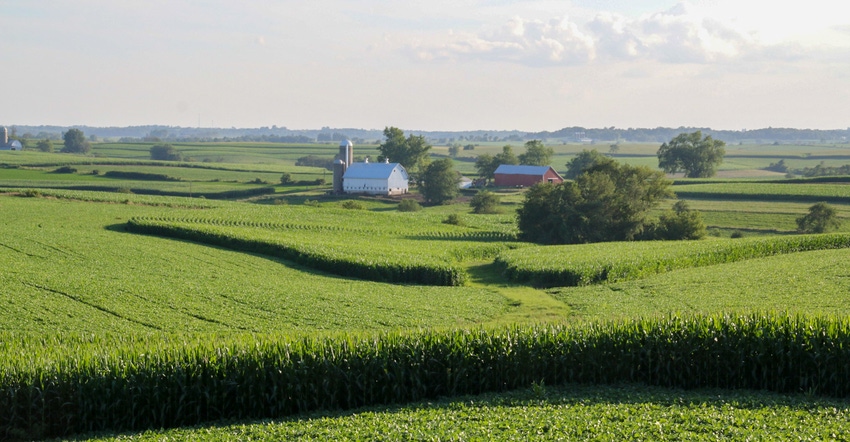April 27, 2020

Frank Friar has heard just about every tale of woe imaginable in his 13 years as an economic specialist with the Wisconsin Farm Center, a division of the Wisconsin Department of Agriculture, Trade and Consumer Protection.
Friar is one of the consultants who takes calls from Wisconsin farmers looking for advice about how to deal with the plethora of problems they traditionally face, from low commodity prices to unfavorable weather conditions to farm financial problems. Now, farmers face additional uncertainty with the market disruptions caused by the coronavirus pandemic.
Related: Complete coronavirus coverage
“Some of the stories we hear, we say we don’t think that farmers could make them up, so they must be true,” Friar says. “Many times, these are very good farmers who have given it their best shot.
“I had a call from a farmer the other day who said it hurts every time he goes out to the barn. He has never worked so hard, and he is still losing money.”
Thousands of farm families have turned to the Wisconsin Farm Center since it was established in the mid-1980s. The center provides a variety of services to farmers, including financial and business consultation, farm succession planning, farm ownership transition planning, legal and financial mediation, and counseling vouchers.
These services are provided at no cost to farmers, and all information provided to the center is confidential. In recent years, the center has averaged about 2,200 calls a year.
Taking a toll
The counseling voucher program allows farmers to gain access to mental health services free of charge. During the month of March, 29 vouchers were sent to Wisconsin farmers.

“We’re doing what we can to make sure people understand that these resources are available,” Romanski says. “The money is available, and we’re putting it to use.”
Romanski says farm center counselors are hearing a considerable amount of anger and frustration on the other end of the phone line, as they listen to farmers talk about their financial troubles.
“Between lower prices, a trade imbalance and the weather, these have been challenging times during the last four or five years,” he says. “In the spring, though, there is always optimism on the farm. ‘This year can’t be worse than last year; let’s go to it,’ farmers say. But I don’t think anybody could have seen the impact that COVID-19 was going to have on farmers and the agriculture industry. Nobody could have foreseen that this was coming.”
Romanski says DATCP is doing what it can “to be a resource for the industry and make sure we’re advocating on behalf of the industry.”
Widespread impact

The number of dairy farms has been on a steady decline since he began working in agriculture in the early 1980s — from 44,000 dairy herds in 1983 to about 7,200 today.
The milk price was on the rise earlier this year, and economists were predicting a pretty good year for dairy farmers, he says. But then the bottom dropped out when traditional markets became unstable due to the pandemic.
Now, even farmers who exited dairy in favor of another agriculture discipline are facing challenges, Friar says.
“Crop and livestock farmers are losing their price, too,” Friar says. “As one farmer told me the other day, ‘I got out of dairy so now I can lose money cash cropping.’”
Romanski says DATCP’s work continues, even though the vast majority of the agency’s employees are working from their homes. Only about 25 of DATCP’s 600 employees are working out of the headquarters building on Madison’s east side.
“Especially during an emergency situation like this, we view our agency as a resource to the agricultural industry and to the public,” Romanski says. “Our two primary focuses are to make sure there is food on the shelves in the stores, and that we continue to be a resource and support the industry to the greatest extent possible.”
DATCP officials have been hosting weekly stakeholder calls with various segments of the ag industry to make sure everyone works together and the industry is connected with the necessary resources.
“It’s a way for us to connect the dots to try to get answers for people in a really challenging situation,” Romanski says.
Enjoys helping farmers
Friar says although he is past the traditional retirement age, he continues to work as a Wisconsin Farm Center counselor because he enjoys helping farmers.
“Our motivation is to help farmers keep farming,” he says. “If they’re fighting a losing battle, we don’t think it’s healthy to just keep going and going, so we are also there to help farmers transition to something else they will be able to do.”
Friar is optimistic most farmers will work through this difficult time and find success on the other side of it.
“I think lenders have a better understanding of tough times,” Friar says. “Everybody is pulling together to try to save agriculture.”
Massey lives near Barneveld, Wis.
Read more about:
Covid 19You May Also Like




